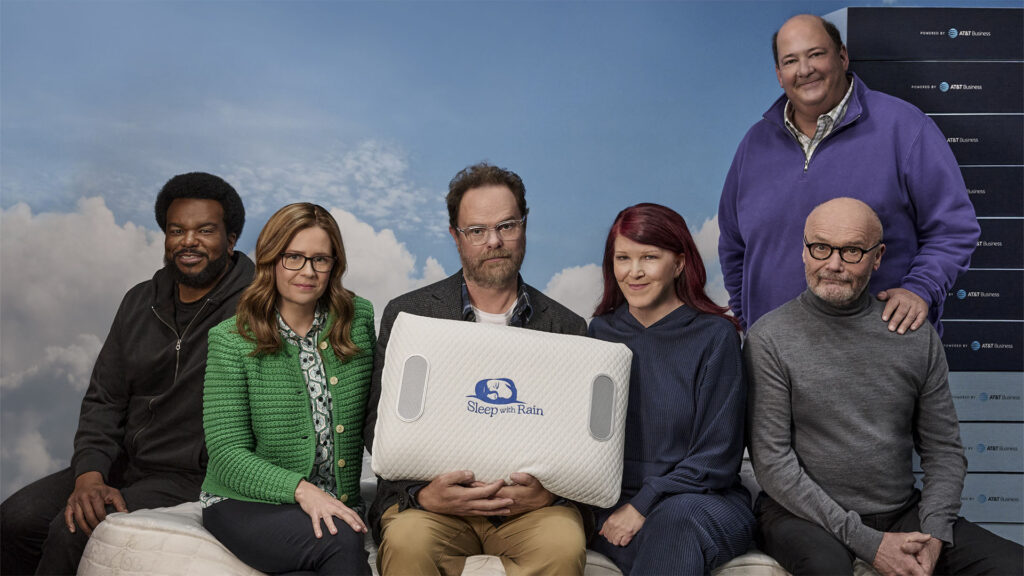A great marketing team is nothing without great leadership. At the Brand Innovators CMO Marketing Leadership livecast, high-level executives shared valuable advice about leadership, after guiding their teams through the turbulent past 12 months. Through it all, CMOs and marketing executives have remained strong, reliable, and steadfast.
The pivot to digital created both unique challenges and growth opportunities for marketing teams. Brands needed to adapt their marketing strategies to the digital landscape, while at the same time, CMOs needed to adjust their leadership strategies to account for remote work.
Denise Karkos, Chief Marketing Officer at SiriusXM, admires the resilience and empathy displayed by her marketing team throughout the pandemic. This year, Karkos constructed an even stronger team culture by checking-in regularly and being there virtually for team members who needed her most.
“The empathy and resilience of my team is unbelievable. Nowadays, you can see that someone is showing up, getting the job done, and being super positive. But if you ask a few questions, you’ll see that they are on the brink of breaking down. Leading through change is about creating relationships at a deeper level, and you will become a much stronger team if you can do that.”
After SiriusXM acquired Pandora in 2019, Karkos mediated the shift in culture among her teams, keeping up constant communication with all employees as well as the brand’s CEO.
“When we merged SiriusXM and Pandora, I had a playbook that got wildly disrupted for a multitude of reasons,” said Karkos. “No merger or acquisition of companies is the same. With these two brands, you had two completely different cultures. You had Pandora with a California tech culture, and SiriusXM as a media conglomerate from New York. I really took the time to listen to everybody and continually checked in with leadership and the CEO. The end goal was to achieve one cohesive culture. Culture changing is a long game. I had to keep up constant communication with all teams. The gift that I can give to my team is the knowledge that there is complete alignment with the CEO’s vision and our vision, and that those communications are always open and consistent.”
Throughout the pandemic, brands used their resources in novel ways to provide supplies for struggling communities. Vistaprint, a company known for their design and printing services, took advantage of their supply chain capabilities to provide high-quality masks for communities in need. CMO Ricky Engelberg, who had only been at the brand for six months before the start of the pandemic, led a marketing initiative to clarify the significance of wearing masks.
“We realized in early April of last year, that based upon the global nature of Vistaprint, we had a great supply chain that would help us make high-quality masks at scale around the world,” said Engelberg. “It was absolutely critical. Our leadership team knew we needed to do this. We made the ad, ‘This Is Not A Mask,’ to tell the story of the importance of masks. For us, we understood that it wasn’t just about selling masks, but it was about embracing masks to allow communities and small businesses to reopen safely.”
This year, Vistaprint has also taken advantage of the opportunity to hire amazing talent from all over the world with their new “remote first” policy, which enables all employees to work from home. “It’s nice to work remotely so we don’t have to ask all these people to relocate to our main offices in Boston or Barcelona. We are remote first, and that has a massive impact for us. It’s really exciting for us because it allows us to bring in unique perspectives from all the different small businesses around the country,” explained Engelberg.
For James O’Leary, SVP & Head of Brand at Wells Fargo, the pandemic has elucidated the importance of understanding your brand’s value to local communities. Throughout the pandemic, Wells Fargo has committed to the effort of keeping small businesses afloat despite economic turmoil.
“We’ve worked with a lot of small businesses who were forced to pivot, and what I’ve learned from that is that it’s so important to deeply understand the value that you create, and what drives trust for your brand,” said O’Leary. “You have to understand that at a really committed level where you need to be honest with yourself. If you need to pivot, you need to make sure you don’t lose sight of that. It’s really important to commit to what your drivers are.”
Quinn O’Brien, VP of Marketing at multinational technology company Lenovo, expects marketing teams to face upcoming challenges as the world returns to normal. O’Brien believes that marketers have become uniquely accustomed to being “short-term oriented” due to the chaos of the pandemic, and they will eventually need to re-adjust to “long-term” strategies.
“We’ve become very short-term oriented so the concept of a three or five year plan is really daunting. I think one of the bigger challenges we’ll see in the marketing world is getting that long-term view back.”
O’Brien also spoke about the use of reputation as a measure of long-term brand value, emphasizing Lenovo’s commitment to diversity. “Reputation is one of those few brand metrics that’s driven beyond marketing, and it’s quite long-term. We’re going to continue to focus on the short-term view, but work on allocating a portion of our focus to our reputation. One of the biggest builders of the Lenovo reputation is our genuine commitment to diversity, which is pretty unexpected in the tech industry.”



